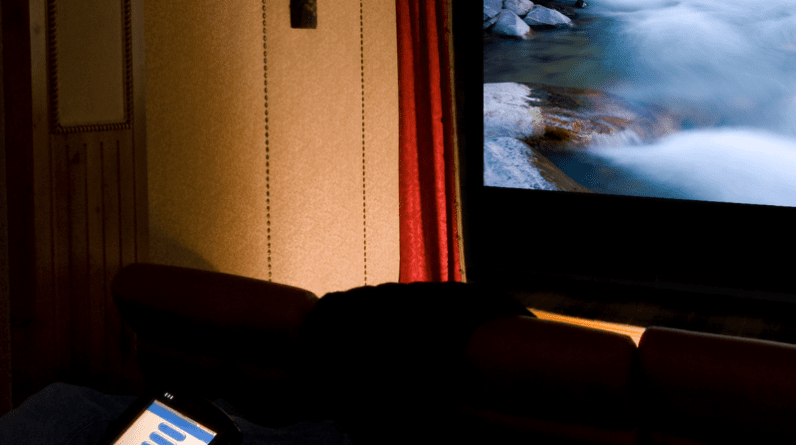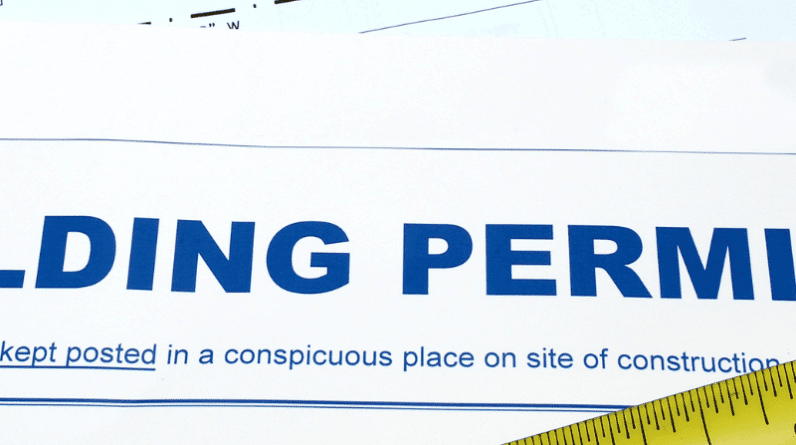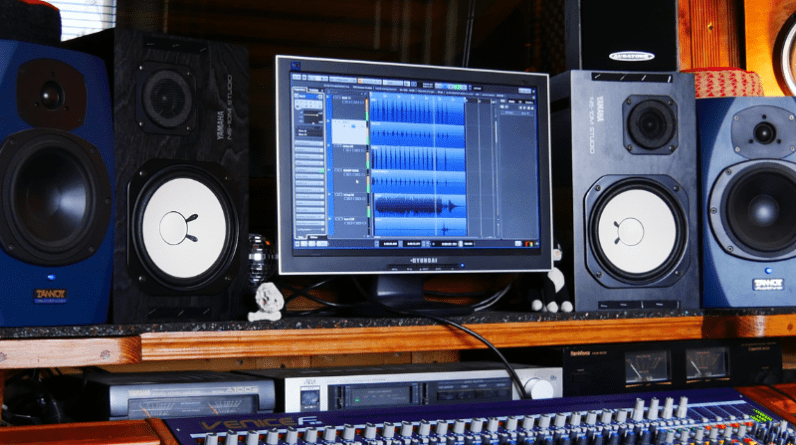
Picture this: you come home after a long day, ready to unwind and immerse yourself in your favorite movie or binge-watch that thrilling series. But instead of squeezing into a small living room or dealing with distractions, you have your very own home theater in the comfort of your own garage. Yes, that’s right, converting your garage into a home theater is not only feasible but also an excellent way to create a cinematic oasis right in your own home.
Transforming your garage into a home theater is a project that combines creativity, design, and a little bit of DIY spirit. Let’s dive into the essential steps to help you get started on the journey to creating your ultimate home entertainment space.
- Planning the Layout: Begin with careful planning. Assess the dimensions of your garage and take note of any potential challenges, such as limited space or awkward corners. Consider the placement of the screen, the seating arrangement, and how you’ll integrate audio-visual equipment. A well-thought-out layout will maximize the comfort and cinematic experience.
- Insulation and Climate Control: Garages are not naturally designed to maintain a comfortable indoor environment, especially when it comes to temperature. Proper insulation is key to keep the space cozy during colder months and cool during hot summer days. Additionally, investing in climate control, like an air conditioning system or space heaters, will ensure year-round enjoyment of your home theater.
- Soundproofing the Space: A crucial aspect of any home theater is impeccable sound quality. The last thing you want is the noise from outside disrupting your movie night. Soundproofing the garage will enhance the audio experience and prevent sound from escaping the room. Use acoustic panels, weather stripping, and insulation materials to minimize sound leakage.
- Electrical and Wiring Considerations: A home theater requires numerous electrical outlets and proper wiring to accommodate all your audio-visual equipment. It’s essential to have an electrician assess your garage’s electrical capacity to handle the load and make any necessary upgrades. This step ensures you can power your projector, speakers, amplifiers, and other devices without overloading the circuits.
- Choosing the Right Screen and Projector: The heart of any home theater is, of course, the screen and projector. Invest in a high-quality projector and a screen that fits your space. Consider the throw distance, screen size, and resolution to achieve optimal visual performance. A large, crisp, and vivid display will make your movie nights truly unforgettable.
- Comfortable Seating: No home theater is complete without cozy and comfortable seating. Opt for plush, reclining seats that provide ample support during long movie marathons. Consider the number of seats you need, keeping in mind the size of your family or the frequency of guests joining you for movie nights.
- Clever Storage Solutions: To maintain a clutter-free environment, incorporate smart storage solutions into your home theater design. Cabinets or shelves can house your movie collection, gaming consoles, and other accessories, keeping everything organized and within reach.
- Lighting and Ambiance: Lighting plays a significant role in setting the right mood for a home theater. Install dimmable lights or even LED strips that you can control to achieve the perfect level of brightness. Don’t forget blackout curtains or blinds to block out external light during screenings.
- Finishing Touches and Decor: Add a personal touch to your home theater with movie-themed decor, posters, and memorabilia. Consider sound-absorbing curtains or wall art to enhance the acoustic environment while adding a touch of cinematic flair to the space.
- Testing and Tweaking: Once everything is set up, take the time to test and tweak your home theater setup. Calibrate the audio system, adjust the projector settings, and fine-tune the seating arrangement to ensure an optimal viewing experience.
In conclusion, converting your garage into a home theater is a rewarding project that will elevate your movie nights and home entertainment experience. With careful planning, attention to detail, and a dash of creativity, you can create a captivating cinematic haven right at home. So, grab your popcorn, dim the lights, and get ready for a cinematic journey like no other, all within the comforts of your own converted home theater. Enjoy the show!
FAQs about Converting the Garage into a Home Theater
- Is it really feasible to convert my garage into a home theater? Absolutely! Converting your garage into a home theater is not only feasible but also a popular trend among homeowners. With proper planning, insulation, soundproofing, and the right equipment, you can create a fantastic cinematic space in your garage.
- What kind of audio-visual equipment do I need for a home theater? The essential audio-visual equipment for a home theater includes a high-quality projector, a suitable projection screen, surround sound speakers, an audio receiver, and a media player (e.g., Blu-ray player or streaming device). Invest in brands known for their performance to ensure an immersive movie-watching experience.
- Can I use my existing garage door for the home theater conversion? While you technically can use the existing garage door, it’s not the best option for a home theater. Garage doors are generally not well-insulated, which can affect temperature control and soundproofing. It’s recommended to replace the garage door with a wall and install a proper entrance door for easy access.
- How much does it cost to convert a garage into a home theater? The cost of converting a garage into a home theater can vary depending on factors like the size of the space, the quality of equipment, and any additional renovations needed. On average, it can range from a few thousand to tens of thousands of dollars. However, consider it an investment in your home and entertainment experience.
- Do I need to hire professionals for the conversion, or can I do it myself? The complexity of the conversion depends on your DIY skills and the level of customization you desire. While some aspects, like insulation and electrical work, may require professional assistance, other parts, such as decorating and setting up the audio-visual equipment, can be tackled as DIY projects if you have the know-how. Consider your expertise and available time before deciding on the DIY approach.





